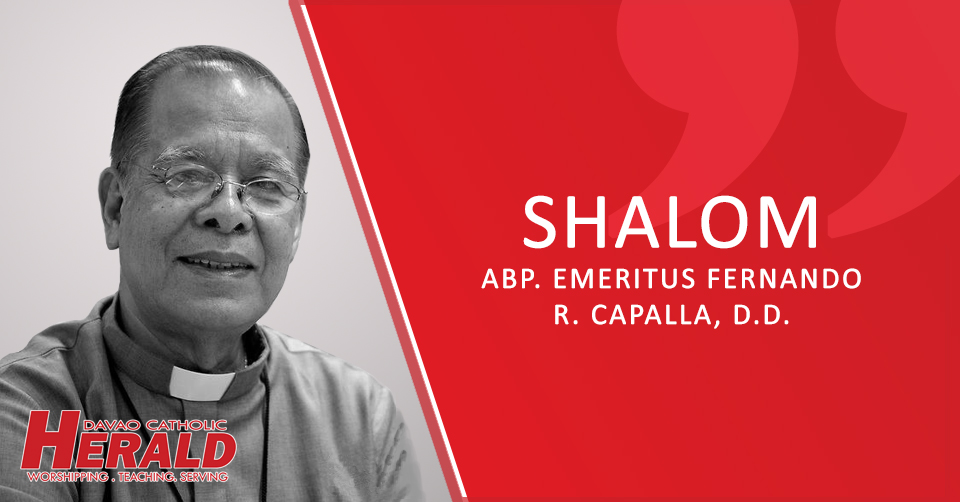
Trusting our government
We begin our reflection with a story.
A disciple once said to Confucius, “What are the basic ingredients of good government?”
He answered, “Food, weapons, and the trust of the people.”
“But,” continued the disciple, “if you were forced to dispense with one of these three, which would you drop?”
“Weapons.”
“And if you had to drop one of the other two?”
“Food.”
“But without food the people will die.”
“From time immemorial, death has been the lot of human beings. But a people that no longer trusts its rulers is lost indeed.”
Do people worldwide trust government’s handling of Covid-19 pandemic?
The pandemic Covid-19 has already caused the death of thousands of infected people worldwide. There are also hundreds of recoveries though. There are thousands still being tested. Reports change every day worldwide.
Government leaders also worldwide have been trying to prevent, or at least minimize, the spread of the virus. They do this by installing quarantine set-ups for people to stay indoors and by lockdowns of towns, cities and regions to prevent people’s movements, travels and businesses. To bring all these into effect implementing guidelines and regulatory directives have been made and set in place.
While legal, cultural, religious, political, economic, health, medical, research, military and police issues and problems continue to challenge State and political leaders, the level of people’s trust, though not overwhelmingly enthusiastic, in governments and in the so-called frontliners or health workers, has certainly not abated. It surely deserves worldwide high recognition, praise and gratitude. This is being done globally in many colorful, artistic and fantastic ways.
But are there informative and instructive ways being contributed by people to help government leaders and their subordinates become more trustworthy? We’ll reflect on possible responses from the principles of ecumenical and inter-religious dialogues already explained in previous Shaloms.
The story mentioned above is taken from the Heart of the Enlightened: A book of story-meditations by Fr. Anthony de Mello, S.J., published by Doubleday, USA, 1989, pp 83-84. Confucius was a Chinese philosopher who lived before Christ (551-479 BC). His wise teachings based on Buddhism are considered the art of Confucianism.


No Comments